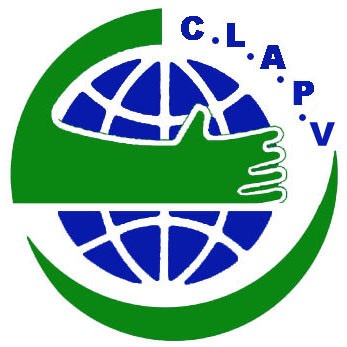Centre for Legal Assistance to Pollution Victims (Beijing)
Instituto Internacional de Derecho y Medio Ambiente (Spain)
Environmental Public Litigation System (EPIL System)
Safeguard environmental rights and protect interests of pollution victims by providing legal assistance is the main goal of the Centre for Legal Assistance to Pollution Victims. As a partner in a same target group, they have found the Instituto Internacional de Derecho y Medio Ambiente, Spain, which focus on the protection of the environment and promote sustainable development.
Both want to establish an online platform and the continuous sharing of information on environmental public interest litigation cases to improve professional capacities in environmental law litigation worldwide.

Carlota Ruiz Bautista – Instituto Internacional de Derecho y Medio Ambiente and Zeng Yaping – Centre for Legal Assistance to Pollution Victims
The overall purpose of the exchange program was to understand how environmental public interest litigation (EPIL) works in the European Union (EU) and China and to what extent it constitutes a successful tool for environmental protection. By examining the similarities, differences, strengths and weaknesses of each EPIL system, each organization would have a clearer understanding of such systems. This would then serve as a basis for identifying best practices to improve environmental outcomes through the operation of law.
Also, this project will serve as the basis to create a network to discuss environmental issues and to set combined priorities especially in the light of the ratification of both China and the EU of the Paris Agreement on Climate Change.
“I feel very lucky to be part of the Stiftung Asienhaus EU-China NGOs Twinning Programme and get to know other involved NGOs and twinners. We all have the same aspirations and objectives which can benefit from a long-term cooperation.”
Zeng Yaping
Activities Yaping visiting Instituto Internacional de Derecho y Medio Ambiente in Madrid
- Getting a better understanding how EPIL in Europe works and what about differences to EPIL in China
- Visiting some other NGOs which are working on Aarhus-related issues in Europe
- Analyzing cases, which gave an introduction of the role that NGOs play in EPIL and how they use law as a tool – whether influencing decision-makers or in court.
Activities Carlota and Alba visiting Centre for Legal Assistance to Pollution Victims in Beijing and Changsha
- Meetings with other NGOs to get a comprehensive insight how a chinese environmental NGO works and to get information about the implementation of the 2015 Environmental Protection Law in China.
- Participation in one workshop in Changsha with intense discussions and a half day field trip with the NGO Green Hunan to learn about different topics related to Chinese NGO work from experts on the field as well as the experiences from other twinning pairs on their topics of expertise: sustainable living, sustainable communities, education and pollution and climate change and litigation.
” (…), through the dissemination of our comparative analysis report and the creation of the EU-China legal network we will have a wider field of action to promote social justice and environmental protection through law.”
Carlota Ruiz Bautista
Twinning Report Centre for Legal Assistance to Pollution Victims (Beijing) & Instituto Internacional de Derecho y Medio Ambiente (Spain)
Twinning Experience Presentation Centre for Legal Assistance to Pollution Victims (Beijing) & Instituto Internacional de Derecho y Medio Ambiente (Spain)
About the Twinning organizations

Centre for Legal Assistance to Pollution Victims, Beijing
The Centre for Legal Assistance to Pollution Victims (CLAPV) was established in 1998 and its focus is to safeguard environmental rights. CLAPV is a research institution on environmental and natural resource law and mainly consists of 25 legal experts and attorneys who are willing to deal with cases involving public interest. They organize research on environmental legislation and its implementation, promote international academic exchanges and launch professional training programs. The organisation also tries to popularize knowledge on environmental and natural resource law and protect the environmental rights and interests of pollution victims by providing legal assistance.

Instituto Internacional de Derecho y Medio Ambiente, Madrid
The Instituto Internacional de Derecho y Medio Ambiente (IIDMA) is a non-profit organization registered in Spain and established in December of 1996. It was accredited to the Governing Council of the United Nations Environmental Program (UNEP) in 1998 and, in 2001, was declared a public utility by the Spanish Ministry of Home Affairs. IIDMA’s mission consists of contributing to the protection of the environment and promoting sustainable development through the study, development and effective implementation of the law, emphasizing implementation, compliance and enforcement.



